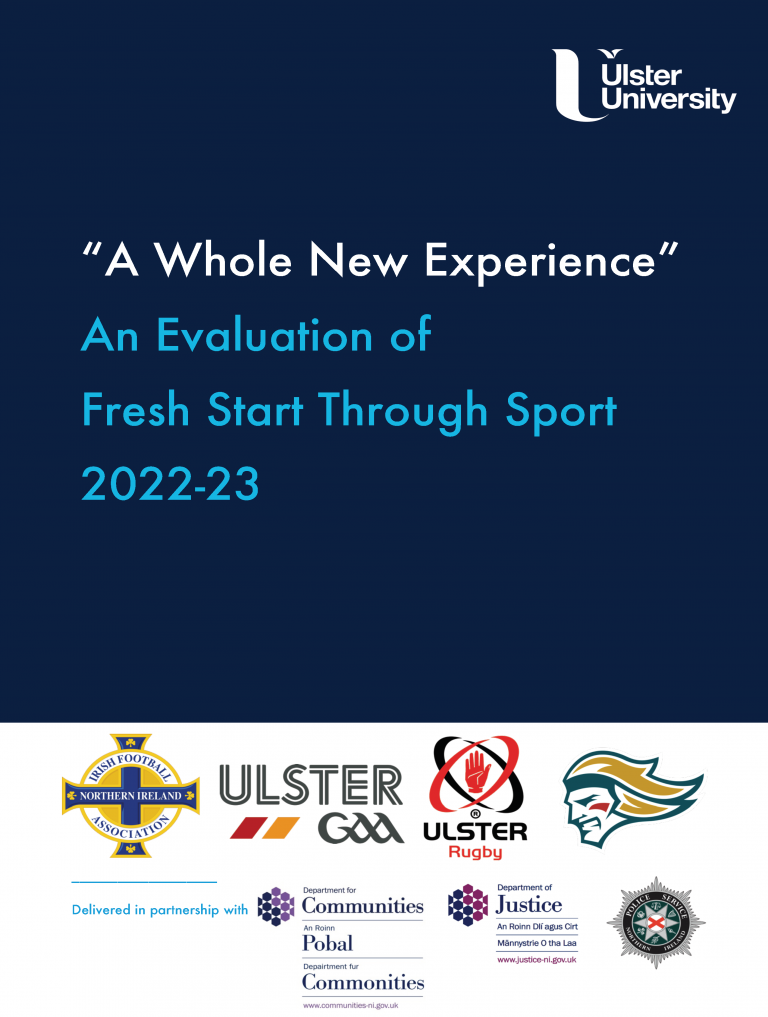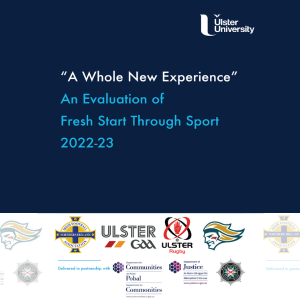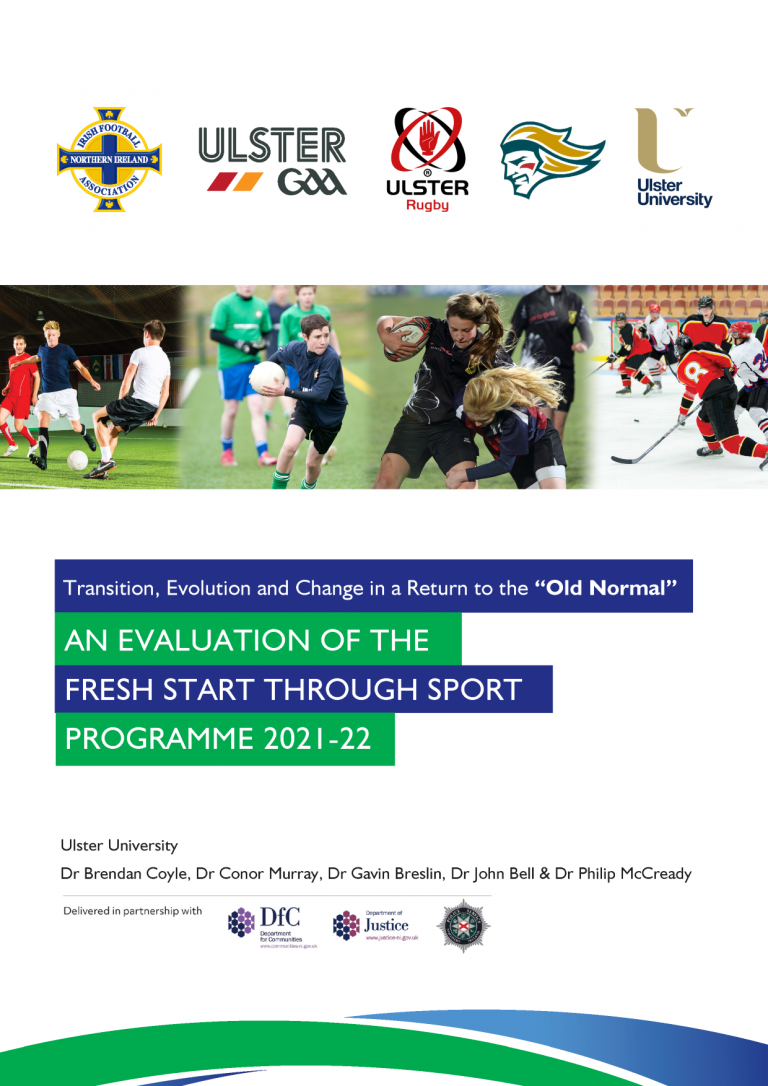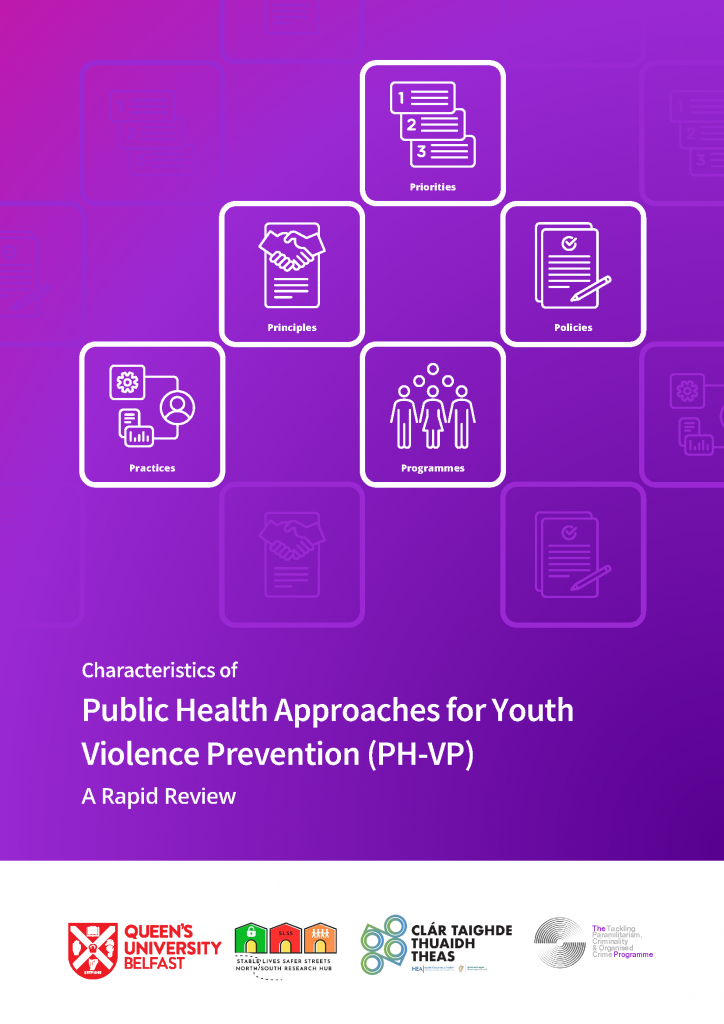The latest evaluation report on the Department for Communities’ (DfC) led Fresh Start Through Sport programme reveals wide-ranging benefits from its unique multi-sport approach. Funded by the NI Executive’s Tackling Paramilitarism, Criminality and Organised Crime programme, the initiative engages marginalised young people using football, rugby, gaelic games and ice hockey.

Among 98 participants in 2022-23, 45% were female, a large and positive increase in previous years. Surveys showed almost all participants gained new skills and knowledge, with many keen to volunteer after completing the 12-week programme. Qualitative data highlighted the value participants placed on novel experiences like wheelchair hurling, as well as improved empathy and relationships.
A key impact was unity across community divides. Trying sports like gaelic games helped participants from Protestant/Unionist backgrounds overcome preconceptions. The programme also brought positive interactions between youth and police. PSNI officers attended sessions, building trust and relationships through shared activities.
Participant satisfaction was extremely high. Facilitators received consistent praise for their engaging approach. Recommendations from the evaluation include exploring mental health topics, balancing input across sports, and further involving programme “Ambassadors” in co-design.
With evidence of life-changing impacts for some participants, Fresh Start Through Sport continues to foster cross-community bonds. Its collaborative ethos promotes inclusive environments that steer vulnerable young people towards brighter futures.
To read the report, please click on the link below.





